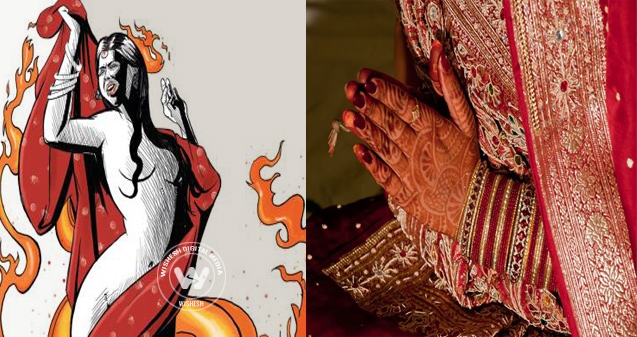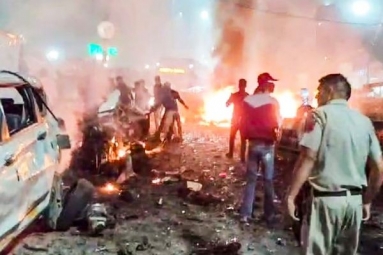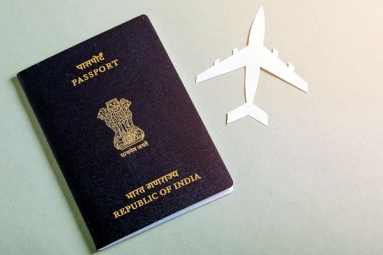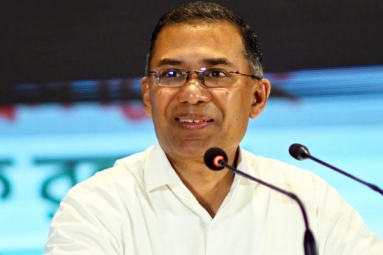
(Image source from: One bride torched in India every hour})
Dowry deaths have become so rampant in India that we have stopped paying any attention to it, unless it's our daughter, sister, niece or friend who is torched down by greedy in-laws.
But are you aware that every hour a woman is burnt in India because of dowry? It's a bane that is rooted in our social system.
“National Crime Records Bureau (NCRB) figures state that 8,233 dowry deaths were reported in 2012 from various states. The statistics work out to one death per hour. The number of deaths under this category of crime against women were 8,618 in 2011 but the overall conviction rate was 35.8 per cent, slightly above the 32 per cent conviction rate recorded in the latest data for 2012,” reports Time of India.

The rate of dowry deaths in India saw a steady rise during the period 2007 and 2011. While in 2007, 8,093 such deaths cases were filed, the numbers rose to 8,172 and 8,383 in 2008 and 2009 respectively and 8,391 in 2010.
Quite surprisingly, cases of dowry harassment and death isn't restricted to Indian lower or middle class alone. Even affluent families from upper class and even educated class are significantly involved in this growing crime against women in India.
According to the Dowry Prohibition Act of 1961, request, payment or acceptance of a dowry, "as consideration for the marriage" is illegal.
"The existing law has certain loopholes and needs to be made stricter. Despite the amendments made to the Dowry Act in 1983, good results are still desired to be achieved," Suman Nalwa, additional deputy commissioner of Delhi Police (Special Unit for Women and Children) said.
Kamini Jaiswal, a senior Supreme Court lawyer believes, “We need quick conviction in such cases. Our judicial procedure has become very slow, police does not record a case at initial stage.”
AW: Suchorita Dutta








